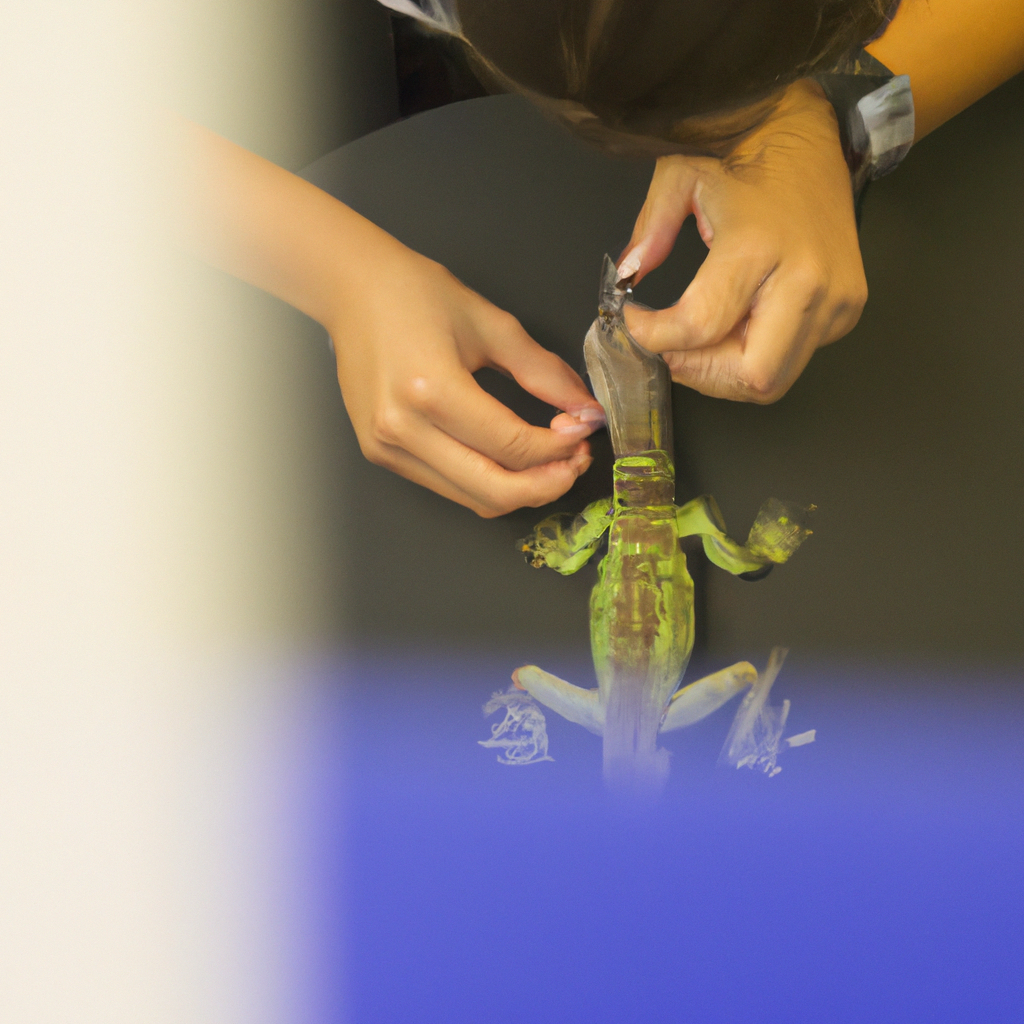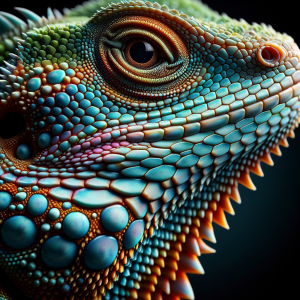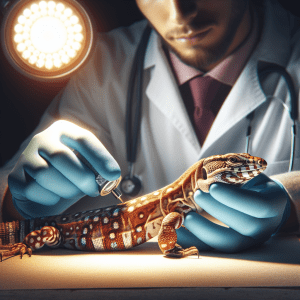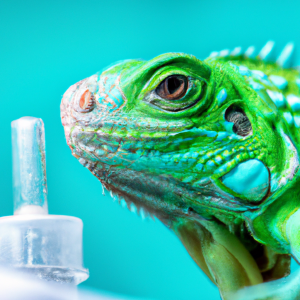Introduction to Lizard Veterinary Care
Hey, did you know that lizards have unique healthcare needs that require specialized veterinary care? It’s fascinating how these reptiles have distinct requirements compared to other pets. When it comes to Lizard Veterinary Care, it’s crucial to understand that these scaly companions need tailored attention to thrive. From regular check-ups to addressing specific health issues, caring for a lizard involves a different approach than traditional pet care.
Just like us, lizards can experience health problems that may go unnoticed without proper veterinary care. That’s why regular check-ups are essential to ensure your pet lizard stays healthy and happy. Imagine taking your lizard to the vet for a routine visit and discovering potential issues early on, preventing them from developing into more serious concerns. It’s all about being proactive and giving your scaly friend the best care possible.
One interesting fact about lizards is that they are ectotherms, meaning they rely on external sources of heat to regulate their body temperature. This unique trait influences their overall health and well-being, making it crucial to provide them with the right environment and care. Understanding these biological aspects of lizards can help you appreciate the importance of specialized veterinary care tailored to their specific needs.
So, the next time you observe your lizard behaving differently or notice any signs of discomfort, don’t hesitate to seek expert veterinary advice. By staying informed and proactive in caring for your pet lizard, you can ensure they lead a long and healthy life. After all, these fascinating creatures deserve the best care we can provide.
Importance of Regular Check-ups for Pet Lizards
You know, regular check-ups for pet lizards are more crucial than we might think. Did you know that unlike mammals, lizards are masters at hiding signs of illness? It’s like they have a secret code of silence when it comes to showing any symptoms of health issues. That’s why these routine check-ups play a vital role in detecting any underlying problems early on.
Think of it this way – imagine if your lizard friend could talk to you and say, “Hey, I’m feeling a bit off today.” But alas, they can’t, so it’s up to us to be proactive in ensuring their well-being. During these check-ups, the vet can perform a thorough examination, checking for any subtle signs of illness that we might miss. They’ll look at things like the lizard’s skin condition, weight, behavior, and more to catch any red flags that could indicate a health issue brewing beneath the surface.
I remember when I took my bearded dragon, Spike, for his routine check-up last month. The vet noticed a slight change in his eating habits that I hadn’t even picked up on. Turns out, it was an early sign of a digestive issue that we were able to address promptly. It made me realize just how important these regular visits are, even if our scaly friends seem perfectly fine on the outside.
So, the next time you’re wondering if your lizard really needs that check-up, remember this fun fact – they may not speak our language, but their health definitely speaks volumes through those subtle cues that only a trained eye can catch. Regular vet visits are like cracking a secret code to ensure your lizard stays happy and healthy for years to come.
Common Health Issues in Lizards and How to Address Them
So, have you ever wondered how to address common health issues in lizards? It’s definitely a topic that can be a bit tricky to navigate, but fear not, I’ve got some practical tips to share with you.
When it comes to dealing with health issues in our scaly friends, early detection is key. One of the most common problems that lizards face is metabolic bone disease, which can result from a lack of proper nutrition or inadequate UVB lighting. This can lead to weakened bones and other serious health issues if left untreated.
To address this, it’s crucial to ensure that your lizard’s diet is well-balanced and includes the necessary vitamins and minerals. A calcium supplement is often recommended to prevent deficiencies that can contribute to metabolic bone disease. Additionally, providing your lizard with access to natural sunlight or using UVB lighting in their habitat can help them metabolize calcium properly.
Another common health issue in lizards is dehydration, which can occur if they don’t have access to enough water or if their environment is too dry. To prevent dehydration, make sure to provide a shallow water dish for your lizard to drink from and regularly mist their enclosure to maintain proper humidity levels.
Regularly monitoring your lizard’s behavior and appearance can also help you detect any health issues early on. Look out for signs of lethargy, weight loss, changes in appetite, or abnormalities in their skin or feces. If you notice any concerning symptoms, don’t hesitate to seek veterinary care promptly.
By staying informed and proactive about your lizard’s health, you can help them live a long and healthy life. Remember, a little preventive care goes a long way in ensuring your scaly companion stays happy and thriving.
Finding a Qualified Veterinarian for Your Lizard
Let me share an interesting fact about finding a qualified veterinarian for your pet lizard. Did you know that not all veterinarians are equipped to handle reptile care? It’s true! When it comes to exotic pets like lizards, specialized knowledge and experience are crucial for proper treatment.
Imagine this – you walk into a veterinary clinic with your beloved lizard, hoping to get the best care possible. However, you’re met with puzzled looks and uncertainty from the staff. This scenario highlights the importance of finding a veterinarian who is well-versed in treating reptiles, including lizards.
So, how do you ensure that your pet lizard receives the care it deserves? One practical tip is to do your research beforehand. Look for veterinary clinics that specifically mention expertise in exotic animal care, including reptiles. You can also ask for recommendations from other reptile owners or online reptile communities to find a reputable veterinarian in your area.
Finding a qualified veterinarian for your lizard is not just about routine check-ups; it’s about having peace of mind knowing that your pet is in good hands. By taking the time to find a knowledgeable and experienced professional, you are setting the foundation for your lizard’s health and well-being.
Next time you schedule a veterinary appointment for your pet lizard, remember the importance of finding a veterinarian who understands the unique needs of reptiles. Your lizard will thank you for it with its vibrant health and happiness!
The Role of Nutrition in Lizard Health
Did you know that lizards have unique dietary requirements that vary depending on their species? It’s fascinating how different types of lizards have evolved to thrive on specific diets. For instance, some lizards are herbivores, feeding mainly on plants and vegetables, while others are insectivores, consuming a diet rich in insects and worms.
Understanding the nutritional needs of your pet lizard is crucial for their overall health and well-being. Just like humans, lizards require a balanced diet to ensure they receive all the essential nutrients necessary for growth, development, and vitality. Providing your lizard with the right food can contribute significantly to their longevity and quality of life.
When it comes to feeding your lizard, it’s essential to research their specific dietary requirements based on their species. Some lizards may need a diet high in calcium to maintain healthy bones and prevent metabolic bone disease, while others may require a diet rich in vitamin A to support their immune system and vision.
Additionally, offering a variety of food options can help prevent nutritional deficiencies and keep your lizard interested in mealtime. Experimenting with different fruits, vegetables, insects, and commercial reptile diets can help ensure your pet receives a well-rounded nutritional intake.
Remember, proper nutrition is a cornerstone of lizard care, and investing time and effort into understanding and meeting your lizard’s dietary needs can have a significant impact on their health and happiness. So, the next time you prepare a meal for your scaly friend, consider their unique nutritional requirements and provide them with a diverse and balanced diet to keep them thriving!
Proper Husbandry Practices for Lizard Wellness
Let’s explore husbandry practices for the well-being of your pet lizard. Proper husbandry is crucial for maintaining a healthy and happy lizard friend. It’s like creating a little paradise for your scaly companion right in your home!
When it comes to husbandry, think of it as setting up the perfect living environment for your lizard. Just like how we need a comfy bed and a stocked fridge, lizards have specific requirements to thrive. From the temperature of their enclosure to the type of substrate on the floor, every detail matters.
Now, here’s a personal anecdote to drive the point home. I once had a bearded dragon named Spike who loved basking under his heat lamp. I thought he was just sunbathing, but the truth was, he needed that warmth to regulate his body temperature and digest his food properly. It taught me the importance of understanding the unique needs of each lizard species.
One interesting fact about husbandry practices is that different species of lizards have varying requirements. For example, a desert-dwelling lizard like a leopard gecko will need a dry environment with hiding spots, while a tropical lizard such as an anole will thrive in a humid setup with plenty of plants to climb on.
To ensure your lizard’s well-being, make sure to provide adequate lighting, heating, and humidity levels in their enclosure. Research your lizard species to understand their natural habitat and mimic it as closely as possible. Regularly clean and disinfect their habitat to prevent any health issues.
Remember, the goal of husbandry is to create a stress-free environment where your lizard can exhibit natural behaviors and stay healthy. By paying attention to the little details and providing the right care, you’ll be on your way to being the best lizard parent ever!
Tips for Preventative Care to Keep Your Lizard Healthy
Let me tell you about the importance of preventative care for your pet lizard. You see, just like us, our scaly friends need regular check-ups to stay healthy and happy. It’s not just about waiting until they get sick – it’s about taking proactive steps to keep them in top shape.
Think of it this way: you wouldn’t skip your own annual physical, right? Well, your lizard deserves the same level of care. By scheduling regular check-ups with a lizard veterinarian, you can catch any potential health issues early on and address them before they become serious problems.
Plus, these check-ups aren’t just about physical health. They also give you a chance to ask questions, get advice on proper care and husbandry, and ensure that you’re providing the best possible environment for your scaly companion.
Imagine this scenario: you notice that your lizard has been acting a bit sluggish lately. Instead of waiting for things to worsen, you bring them in for a check-up. The veterinarian examines your lizard, runs some tests, and discovers that they have a minor vitamin deficiency. With a few dietary adjustments and some supplements, your lizard is back to their active, vibrant self in no time.
By staying proactive and investing in preventative care, you’re not just keeping your lizard healthy – you’re also fostering a strong bond with your pet. After all, a healthy lizard is a happy lizard, and that’s what we all want, right? So, don’t wait until there’s a problem. Take that step today to ensure your scaly friend’s well-being for years to come.
Understanding Behavioral Cues in Lizards for Early Detection of Health Problems
Let me tell you about understanding behavioral cues in lizards for early detection of health problems. It’s fascinating how these little reptiles communicate with us in their own unique way. Remember the time when I noticed some unusual behavior in my bearded dragon, Spike? It turned out he was trying to tell me that he wasn’t feeling well. That experience made me realize how crucial it is to pay attention to your lizard’s behavior.
Lizards may not be able to speak, but they have subtle ways of showing us when something is not right. It’s like they have their own language of gestures and movements. For example, if your lizard is suddenly more lethargic than usual, or if they are not eating as they normally do, it could be a sign of an underlying health issue. Understanding these behavioral cues can help you detect problems early on and seek veterinary care promptly.
Did you know that some lizards change color or puff up their bodies when they are stressed or feeling threatened? It’s their way of saying, “Back off, I’m not okay.” By being observant of these signals, you can intervene before a minor issue escalates into a serious health problem for your lizard.
So, next time you interact with your pet lizard, pay attention to their body language and behavior. Are they basking more than usual, hiding excessively, or acting aggressively? These subtle changes could be indicators of an underlying health issue that requires attention. By staying attuned to your lizard’s behavioral cues, you can ensure early detection of health problems and provide timely care to keep your scaly friend happy and healthy.
Emergency Care for Lizards: What to Do in Critical Situations
When it comes to emergency care for lizards, it’s crucial to be prepared for any unexpected situations that may arise. I remember the time when my friend’s bearded dragon, Spike, suddenly stopped eating and became lethargic. It was a scary moment, but knowing what to do in such emergencies can make all the difference in saving your pet’s life.
One interesting fact about emergency care for lizards is that these reptiles are masters of camouflage and often hide signs of illness until they are quite sick. This makes it challenging for lizard owners to detect health issues early on. That’s why being aware of subtle changes in your lizard’s behavior and appearance is essential for prompt intervention.
In such situations, having a reptile first aid kit on hand can be a lifesaver. It’s a practical tip that every lizard owner should take seriously. A well-equipped first aid kit tailored to reptiles can help you administer immediate care before seeking professional veterinary assistance. Items such as sterile saline solution, wound dressing materials, and a reptile-safe heat source are essential components to include in your kit.
But what happens if you’re faced with a lizard emergency and you’re not sure what to do? That’s where understanding basic emergency care procedures can make a real difference. From providing a warm, quiet environment to transporting your lizard safely to the vet, knowing how to act swiftly and decisively can improve the chances of a positive outcome.
So, the next time you see your lizard behaving unusually or showing signs of distress, remember that being prepared and informed is key to handling emergencies effectively. By staying vigilant and proactive, you can ensure that your scaly friend receives the care and attention they need in critical situations.
Ensuring the Best Veterinary Care for Your Beloved Pet Lizard
Let me tell you about emergency care for lizards. It’s something every lizard owner should be prepared for, just in case. Picture this: you come home from work one day, and your beloved lizard is acting strangely. What do you do? That’s where knowing about emergency care comes in handy.
Imagine this scenario: you notice your lizard is showing signs of distress, such as lethargy or difficulty breathing. It can be a nerve-wracking situation, but having a plan in place can make all the difference. This is where knowing the basics of emergency care for lizards can truly be a lifesaver.
One interesting fact about emergency care for lizards is that some species are more prone to certain health issues than others. For example, bearded dragons are known to be susceptible to metabolic bone disease, while chameleons may experience hydration issues. Understanding the specific needs of your lizard’s species can help you be better prepared to handle emergencies.
In times of crisis, quick action is essential. Knowing how to stabilize your lizard before you can get them to a vet can be crucial. For instance, keeping a reptile first aid kit handy with essentials like sterile gauze, saline solution, and a heating pad can help you provide immediate care in emergencies.
When faced with a health scare, it’s natural to feel overwhelmed, but having a plan in place can help you stay calm and focused. By familiarizing yourself with common emergency situations and their corresponding treatments, you can be better equipped to handle any unforeseen health issues that may arise with your lizard.
So, tell me, have you ever had to deal with an emergency situation with your lizard? How did you handle it? Share your experience with emergency care for lizards – it might just help someone else in a similar situation.




